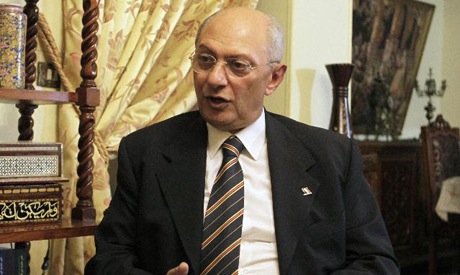 Hesham El Bastawisi, reformist judge and ex-vice president of the Court of Cassation, announced in a press conference Tuesday, that he will enter the upcoming presidential elections as the candidate of the the left-wing Tagammu party.
Hesham El Bastawisi, reformist judge and ex-vice president of the Court of Cassation, announced in a press conference Tuesday, that he will enter the upcoming presidential elections as the candidate of the the left-wing Tagammu party.
Bastawisi said that his campaign managed to collect thirteen thousand recommendation forms to qualify for the ballots despite, facing many hurdles along the way because, as he said, notary employees in some cases declined to issue the petition forms for his candidacy.
The elections for president are set to take place on 23-24 May.
A presidential candidate needs 30 thousand recommendations from 15 different governorates, or the support of 30 different members of parliament (from either the lower or upper houses), or the sponsorship of a registered political party which has at least one seat in parliament in order to run for the position of the president of Egypt.
The Tagammu Party, which was formed in the mid-1970s under the late president Anwar Sadat, has won five seats in the People's Assembly in the last parliamentary elections (roughly one per cent of the total seats in the parliament’s lower house).
Born in 1951, Hesham El-Bastawisi is a prominent reformist judge, and a highly-respected political figure. Bastawisi is best known for standing up against Egypt’s autocratic regime, having played a key role in a struggle for judiciary independence in the wake of the notorious 2005 parliament elections.
Bastwisi publicly endorsed the popular uprising against ousted president Mubarak, and have participated in various demonstrations in Tahrirs square, in the eighteen days of the revolution. He also regularly participated in Tahrir demonstrations against the ruling Supreme Council of Armed Forces (SCAF), which took over following the departure of former president Hosni Mubarak.
He announced his intention to run for Egypt’s presidency in March 2011.
However, he temporarily suspended plans to contest the presidential elections following the notorious clashes between security forces and protesters in Mohamed Mahmoud Street last November, which left more than 40 dead and scores injured.



